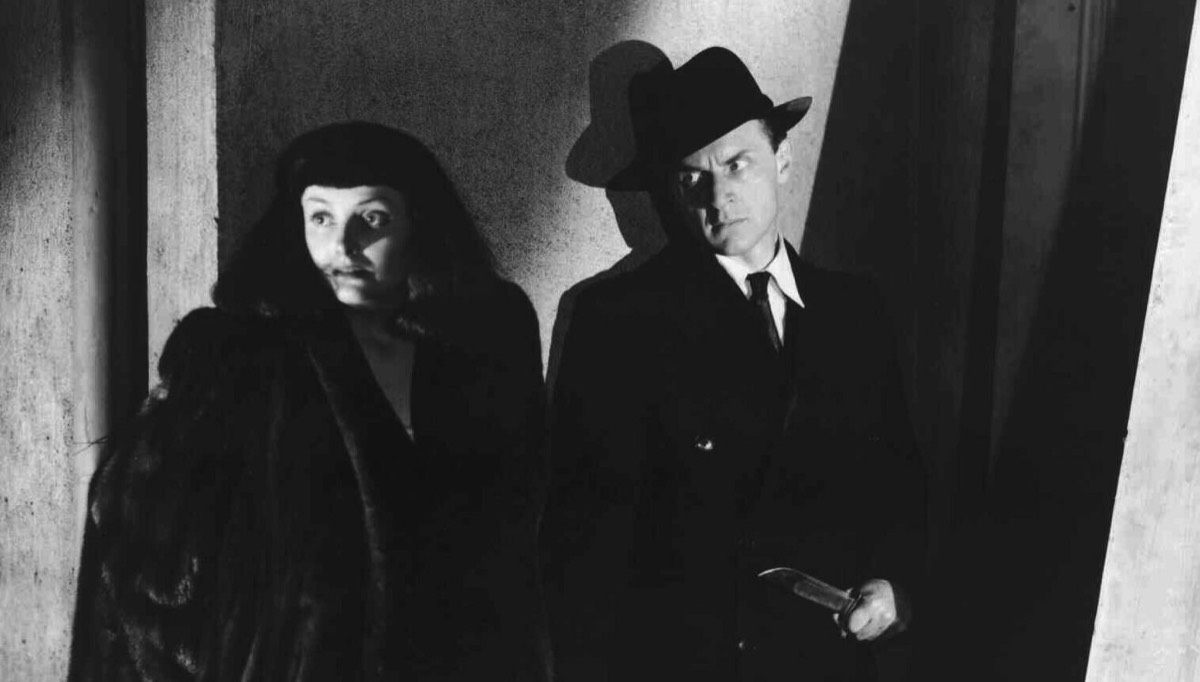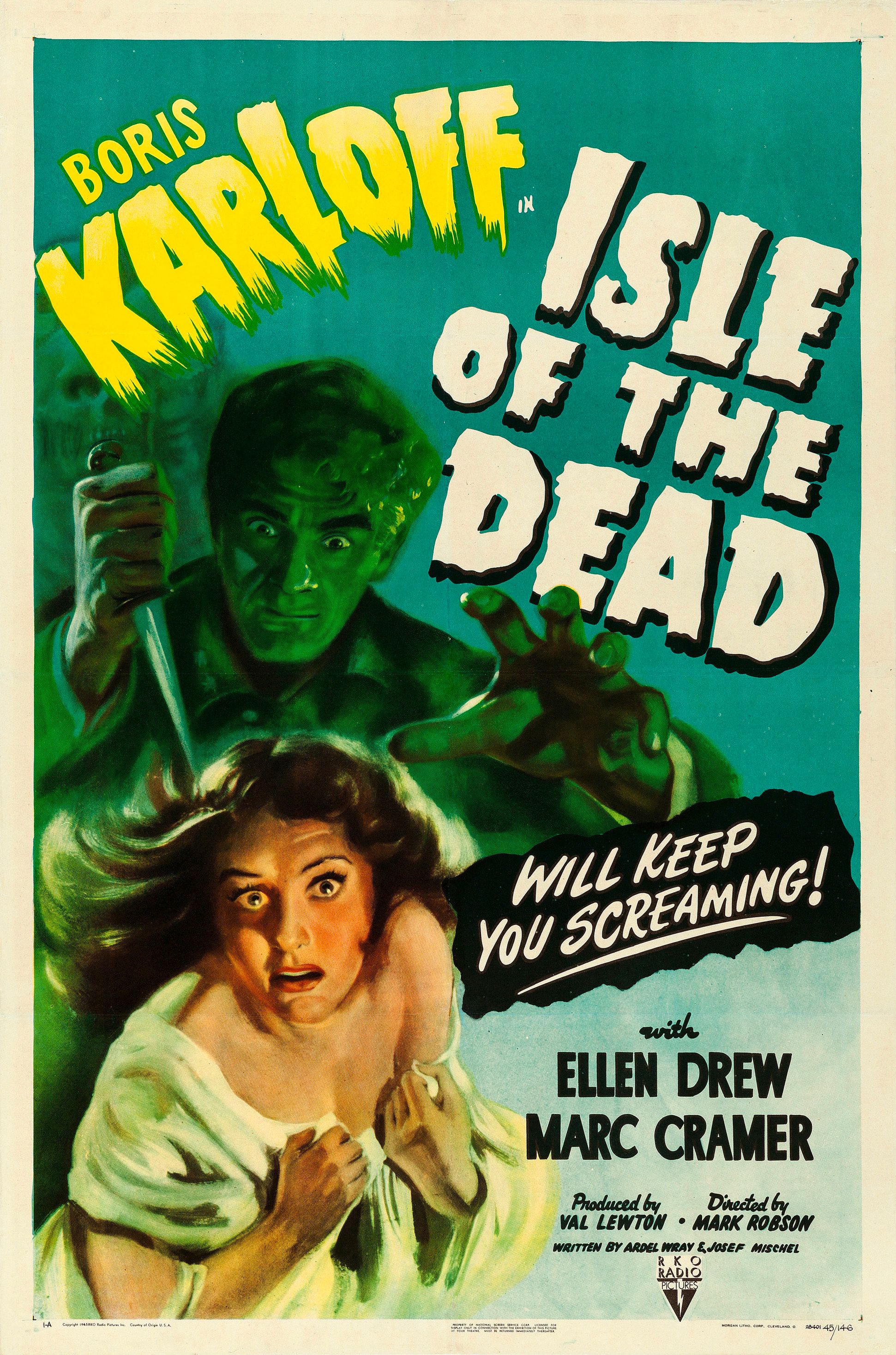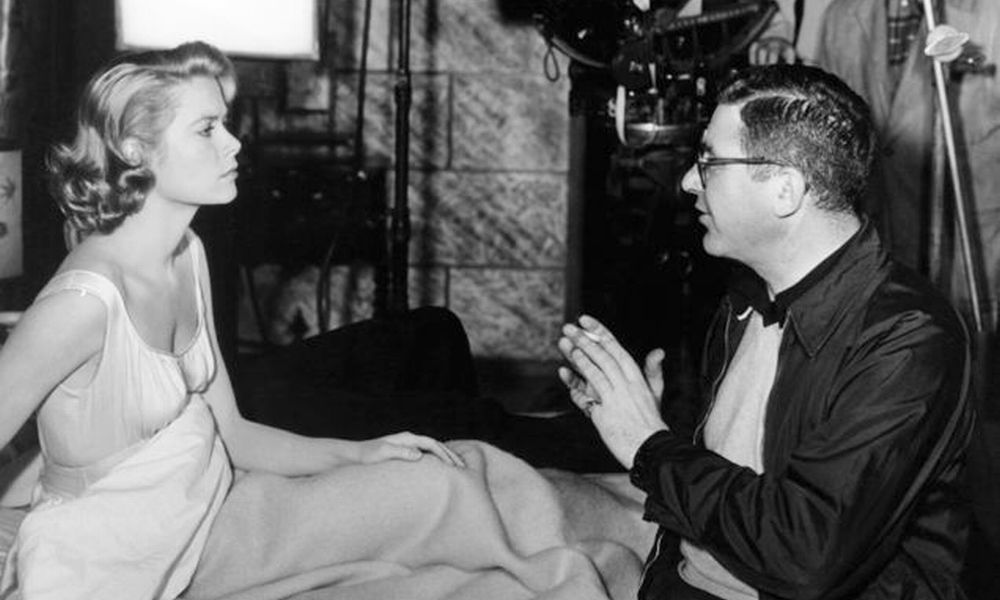"Like his marginally more talented colleague, Robert Wise, Robson graduated to directing through Val Lewton’s small-budget horror pictures. His first five films were for Lewton, and the fact that he has never equaled the atmospheric inventiveness of The Seventh Victim, The Ghost Ship, and Youth Runs Wild is a reflection of Lewton’s authorship and of Robson’s neutrality." - David Thomson (The New Biographical Dictionary of Film, 2010)
Mark Robson
Director / Editor / Producer
(1913-1978) Born December 4, Montréal, Québec, Canada
50 Key Noir Directors
(1913-1978) Born December 4, Montréal, Québec, Canada
50 Key Noir Directors
Key Production Country: USA
Key Genres: Drama, Crime Drama, Melodrama, Horror, Ensemble Film, Sports Drama, War, War Drama, Action, Romance
Key Collaborators: Val Lewton (Producer/Screenwriter), Dorothy Spencer (Editor), Albert S. D'Agostino (Production Designer), Walter E. Keller (Production Designer), Nicholas Musuraca (Cinematographer), Roy Webb (Composer), Skelton Knaggs (Character Actor), Dana Andrews (Leading Actor), Boris Karloff (Leading Actor), Arthur Kennedy (Leading Actor), Susan Hayward (Leading Actress), Philip Yordan (Screenwriter)
Key Genres: Drama, Crime Drama, Melodrama, Horror, Ensemble Film, Sports Drama, War, War Drama, Action, Romance
Key Collaborators: Val Lewton (Producer/Screenwriter), Dorothy Spencer (Editor), Albert S. D'Agostino (Production Designer), Walter E. Keller (Production Designer), Nicholas Musuraca (Cinematographer), Roy Webb (Composer), Skelton Knaggs (Character Actor), Dana Andrews (Leading Actor), Boris Karloff (Leading Actor), Arthur Kennedy (Leading Actor), Susan Hayward (Leading Actress), Philip Yordan (Screenwriter)
"From 1949 to 1965, this American director, schooled by such giants as Orson Welles and Val Lewton, made 22 films, of which at least 16 are enjoyable or thought-provoking - and often both: an enviable record of consistency for one who entered the film industry as a property boy at the age of 18. Robson's better films tend not to have highs and lows, but to be continuously entertaining." - David Quinlan (Quinlan's Film Directors, 1999)
"In a standard commercial career he has had the good fortune to direct several good scripts: Champion (1949), Home of the Brave (1949), Phfft (1954), The Harder They Fall (1956). Like Robert Wise, he began his career as an editor at RKO and directed several films for Val Lewton." - Georges Sadoul (Dictionary of Film Makers, 1972)

The Seventh Victim (1943)
"After cutting Cat People (1942) for Val Lewton, he was entrusted with the direction of five of the producer's horror thrillers. He later worked for various producers and studios in a variety of genres and styles, demonstrating technical proficiency and directorial skill but no particular personal taste or point of view." - The Film Encyclopedia, 2012
"A hopeful start with real and compassionate films (Home of the Brave, 49; Champion, 49) was followed by 15 years of polished efforts (The Bridges of Toko-Ri, 55; The Prize, 63) before Robson began to lose grip on his professional judgment (Valley of the Dolls, 67; Happy Birthday, Wanda June, 71)." - William R. Meyer (The Film Buff's Catalog, 1978)
"Like many directors who began their careers with modestly budgeted B movies, Robson worked especially well on a small canvas; some of his most memorable pictures were made before the advent of television.." - Leonard Maltin's Movie Encyclopedia, 1995
"During the years 1942 through 1945 Val Lewton produced eleven innovative and distinctive pictures and, aside from Lewton himself, it was Robson who made the most important contribution to the cycle, editing the first three and directing five others. These, his first movies as a director, began with an excellent pair of atmospheric thrillers, The Seventh Victim and The Ghost Ship both filmed in 1943. They demonstrated his talent for working quickly and effectively with only minimal resources, learning to use lighting for 'dramatic purposes'." - Joel W. Finler (The Movie Directors Story, 1985)
"Mark Robson was a director who knew his craft well but was not necessarily inspired by it… Many of Robson's films seem to play second fiddle to similar films made by others. The big-budget Champion (1949) and The Harder They Fall (1956) are less effective boxing dramas than Robert Wise's low-budget The Set-Up (1949)… Robson's few films in the seventies, including Happy Birthday, Wanda June (1971) and Earthquake (1974), were negligible." - Ted Sennett (Great Movie Directors, 1986)
"The most obsolete, yet most persistent Hollywood tradition, is the practice of attempting to make all films appealing to all audiences. In today's market, this is absurd. Only a handful of films made each year might appeal to all audiences, and these indeed will be smash hits. Where companies fail is in their continual efforts to soften every film's impact in order to appeal most broadly." - Mark Robson
Selected Filmography
{{row.titlelong}}
GF Greatest Films ranking (★ Top 1000 ● Top 2500)
T TSPDT N 1,000 Noir Films
R Jonathan Rosenbaum S Martin Scorsese
T TSPDT N 1,000 Noir Films
R Jonathan Rosenbaum S Martin Scorsese
Mark Robson / Fan Club
Jonathan Rosenbaum, Martin Scorsese, Mónica Delgado, Andrew Schenker, Christina Newland, Kim Morgan.
Jonathan Rosenbaum, Martin Scorsese, Mónica Delgado, Andrew Schenker, Christina Newland, Kim Morgan.
"Fan Club"
These film critics/filmmakers have, on multiple occasions, selected this director’s work within film ballots/lists that they have submitted.
These film critics/filmmakers have, on multiple occasions, selected this director’s work within film ballots/lists that they have submitted.


